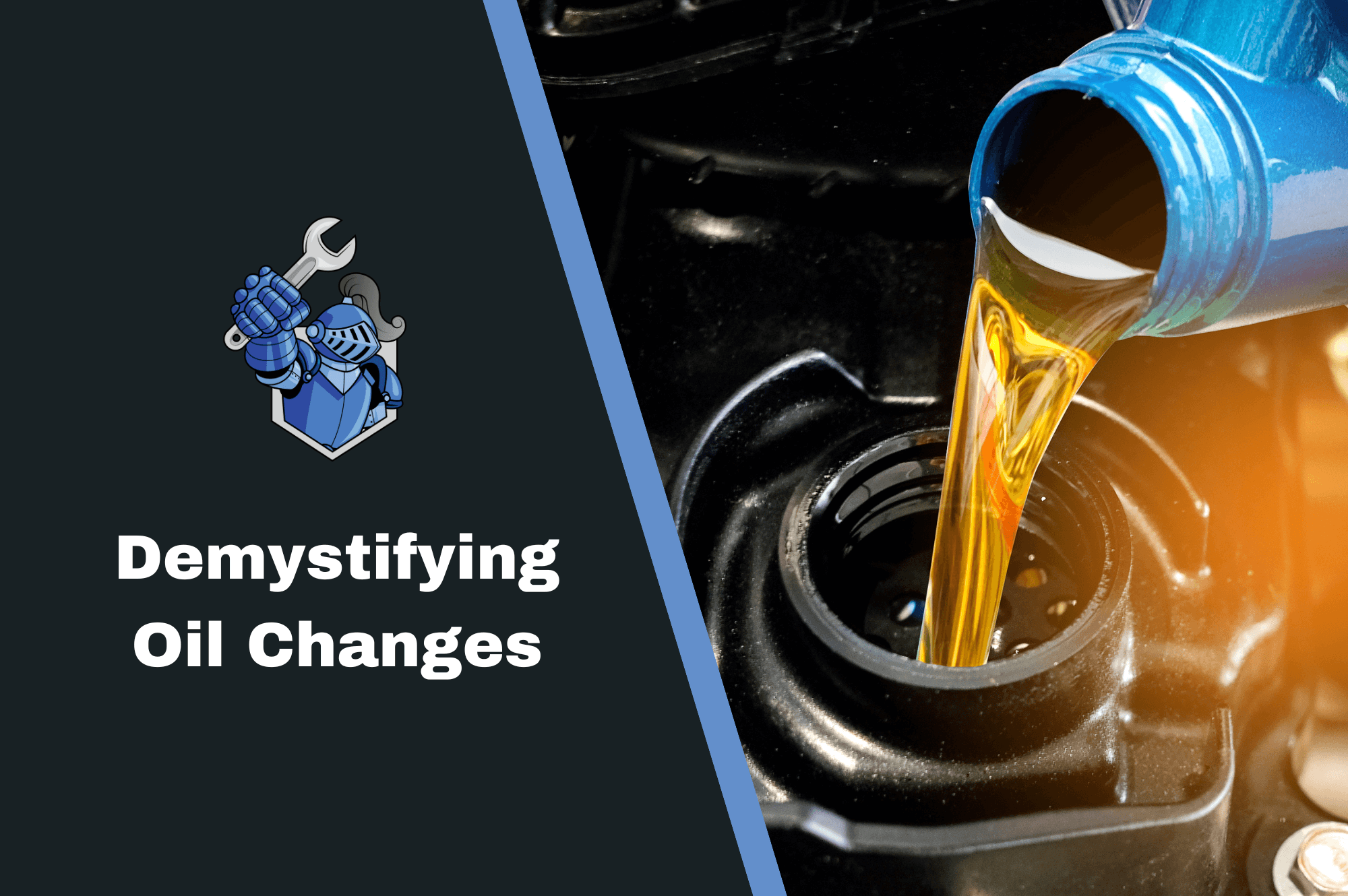The main types include conventional, synthetic blend, and full synthetic oil. Each has its own advantages and disadvantages in terms of performance, longevity, and price.
Motor oil is the lifeblood of your vehicle, ensuring that the engine runs smoothly, efficiently, and for a long time. Understanding the different types of motor oil, their benefits, and how to change the oil yourself can save you time and money while keeping your car in top condition. In this comprehensive motor oil guide, we'll explore everything you need to know about motor oil types, the benefits of using the right oil, and a step-by-step motor oil change guide. Whether you're a car enthusiast or simply want to perform basic maintenance, this guide is for you.
Types of Motor Oil
Choosing the right motor oil for your vehicle is crucial for its performance and longevity. There are several types of motor oil available, each with its own set of benefits:
- Conventional Motor Oil: This is the most common type of motor oil used in standard vehicles. Made from refined crude oil, conventional motor oil is suitable for everyday driving in normal conditions. It offers adequate protection for most engines but may not perform as well under extreme temperatures or heavy loads.
- Synthetic Motor Oil: Synthetic motor oil is chemically engineered to provide superior performance and protection compared to conventional oil. It is designed to withstand high temperatures, reduce engine wear, and improve fuel efficiency. This type of oil is ideal for high-performance vehicles or those that experience extreme driving conditions, such as towing or long-distance driving.
- Synthetic Blend Motor Oil: As the name suggests, synthetic blend motor oil combines conventional oil with synthetic additives. This type of oil offers better performance than conventional oil but at a more affordable price than full synthetic. It provides enhanced protection for engines that undergo moderate to heavy use.
- High Mileage Motor Oil: High mileage motor oil is specifically formulated for vehicles with over 75,000 miles on the odometer. It contains special additives that help reduce oil consumption, minimize leaks, and protect aging engine components. If you drive an older car, this may be the best motor oil for your needs.
- Diesel Motor Oil: Designed for diesel engines, this type of motor oil has a higher viscosity and additional detergents to handle the unique demands of diesel combustion. It's crucial to use the right oil for diesel engines to maintain their performance and longevity.
- Motor Oil for Different Climates: Some motor oils are designed for specific climates, offering better protection in extreme temperatures. For instance, oils with a higher viscosity rating are better suited for hot climates, while those with lower viscosity work well in cold weather.
Motor Oil Benefits
Using the right type of motor oil offers numerous benefits, including:
- Enhanced Engine Protection: Quality motor oil reduces friction between engine parts, preventing wear and tear. This prolongs the life of your engine and keeps it running efficiently.
- Improved Fuel Efficiency: Certain types of motor oil, like synthetic oil, can improve fuel economy by reducing friction and making the engine run smoother.
- Temperature Regulation: Motor oil helps regulate engine temperature by dissipating heat. This is crucial in preventing overheating and maintaining optimal engine performance.
- Cleaner Engine: High-quality motor oils contain detergents that help keep the engine clean by removing sludge and deposits. This leads to better engine performance and longer life.
- Reduced Emissions: By keeping the engine running efficiently and cleanly, the right motor oil can help reduce harmful emissions, making your vehicle more environmentally friendly.
How to Change Motor Oil: A Step-by-Step Guide
Changing your motor oil regularly is essential to maintain your vehicle's performance and longevity. Here’s a DIY motor oil change guide to help you through the process:
Step 1: Gather Your Tools and Supplies
Before you start, make sure you have the following tools and supplies:
- New motor oil (refer to your owner’s manual for the correct type and quantity)
- Oil filter
- Oil filter wrench
- Socket wrench set
- Oil drain pan
- Funnel
- Gloves
- Jack and jack stands (if necessary)
- Rags or paper towels
Step 2: Prepare Your Vehicle
Park your car on a level surface and turn off the engine. Allow the engine to cool down for a few minutes to avoid burns from hot oil. If your vehicle sits low to the ground, use a jack and jack stands to lift it safely.
Step 3: Drain the Old Oil
Locate the oil drain plug under the engine. Place the oil drain pan beneath the plug, then use a socket wrench to remove the plug. Allow the old oil to drain completely into the pan. This process may take a few minutes. Once the oil has drained, replace the drain plug and tighten it securely.
Step 4: Remove and Replace the Oil Filter
Using the oil filter wrench, remove the old oil filter. Be careful, as it may still contain some oil. Before installing the new filter, apply a small amount of new motor oil to the rubber gasket on the filter. This ensures a good seal and makes it easier to remove during the next oil change. Screw on the new filter by hand until it’s snug, then give it an additional half turn.
Step 5: Add New Motor Oil
Locate the oil filler cap on top of the engine and remove it. Use a funnel to pour the new motor oil into the engine. Refer to your owner’s manual for the correct amount. Once you’ve added the oil, replace the filler cap.
Step 6: Check the Oil Level
Start the engine and let it run for a minute. Turn it off and wait a few minutes for the oil to settle. Use the dipstick to check the oil level, ensuring it's within the recommended range. Add more oil if necessary.
Step 7: Dispose of the Old Oil
Proper disposal of used motor oil is essential for environmental protection. Take the old oil and filter to a recycling center or an auto shop that accepts used oil.
When to Change Your Motor Oil
Regular oil changes are crucial for maintaining your vehicle's health. Most manufacturers recommend changing your oil every 5,000 to 7,500 miles, depending on the type of oil and driving conditions. Refer to your owner’s manual for specific recommendations for your vehicle.
NobleQuote: Protect Your Engine and Your Investment
Using the right motor oil and following a regular maintenance schedule is essential for your vehicle's performance and longevity. However, even the best-maintained cars can experience unexpected breakdowns. That’s where an extended warranty from NobleQuote comes in. With our comprehensive coverage options, you can protect your vehicle against costly repairs and enjoy peace of mind. Whether you’re looking for an auto warranty quote, extended car warranty, or extended warranty quote, NobleQuote has you covered. Visit our Learning Center to learn more about motor oil and vehicle maintenance.
Conclusion
Understanding the different types of motor oil, their benefits, and how to change it yourself can significantly impact your vehicle's performance and lifespan. Regular oil changes using the right type of oil will keep your engine running smoothly, improve fuel efficiency, and reduce emissions. For added peace of mind, consider an extended warranty from NobleQuote to cover potential repair costs and protect your investment.
Visit our Learning Center for more information on motor oil, vehicle maintenance, and how to keep your car running smoothly for years to come.
Motor Oil 101: Your Questions Answered
What are the different types of motor oil available?
How do I know which type of oil is right for my car?
Consult your car's owner's manual for the manufacturer's recommendations. They will specify the oil viscosity (e.g., 5W-30) and any specific certifications required.
What is the difference between conventional, synthetic blend, and full synthetic oil?
Conventional oil is refined from crude oil, while synthetic oil is engineered for improved performance and longevity. Synthetic blend is a mix of both.
How often should I change my oil?
It varies depending on the type of oil, driving conditions, and your car's manufacturer recommendations. Generally, conventional oil is changed every 3,000-5,000 miles, while synthetic oil can last 7,500-10,000 miles or longer.
What are the benefits of using synthetic oil?
Synthetic oil offers better performance in extreme temperatures, improved fuel economy, longer oil change intervals, and enhanced engine protection.
Can I switch between conventional and synthetic oil?
Yes, you can switch between them, but it's generally recommended to stick with one type once you've made the switch to synthetic.
What happens if I don't change my oil regularly?
Engine oil breaks down over time, losing its ability to lubricate and protect the engine. This can lead to increased wear and tear, reduced performance, and potentially engine failure.
Can I change my own oil, or should I take it to a mechanic?
Changing your own oil is possible with the right tools and knowledge, but it can be messy. If you're unsure, it's best to have it done by a professional.
What should I do with used motor oil?
Never dump used oil down the drain or on the ground. Many auto parts stores and service stations accept used oil for recycling.
What are some signs that my car needs an oil change?
Check the oil level and color regularly. If it's low or dark and dirty, it's time for a change. You may also notice decreased fuel economy or engine performance.
Suggestions for you
Read MoreLet’s work together
Every week we showcase three charitable organizations that our donations are sent to. Our clients are able to choose which of these three will receive their gift when they add coverage to their vehicle...


 Demystifying Oil Changes: Everything You Need to Know
Demystifying Oil Changes: Everything You Need to Know Essential Tips For Care and Maintenance
Essential Tips For Care and Maintenance Making The Most Of Your Extended Car Warranty: Maintenance Tips
Making The Most Of Your Extended Car Warranty: Maintenance Tips The Ultimate Guide to Vehicle Tire Pressure
The Ultimate Guide to Vehicle Tire Pressure The Ultimate Guide to Automotive Engine Care
The Ultimate Guide to Automotive Engine Care Top 10 Tips for Car Battery Health and Replacement
Top 10 Tips for Car Battery Health and Replacement The Ultimate Guide to Car Tires: Everything You Need to Know
The Ultimate Guide to Car Tires: Everything You Need to Know The True Cost of Maintaining a Toyota: Is It Really as Affordable as You Think?
The True Cost of Maintaining a Toyota: Is It Really as Affordable as You Think? Honda Maintenance 101: Budgeting for Unexpected Repairs & Routine Service
Honda Maintenance 101: Budgeting for Unexpected Repairs & Routine Service The Essential Guide to Car Maintenance: How to Keep Your Vehicle Running Smoothly
The Essential Guide to Car Maintenance: How to Keep Your Vehicle Running Smoothly 8 Essential Tips to Avoid Overpaying at the Auto Repair Shop
8 Essential Tips to Avoid Overpaying at the Auto Repair Shop

